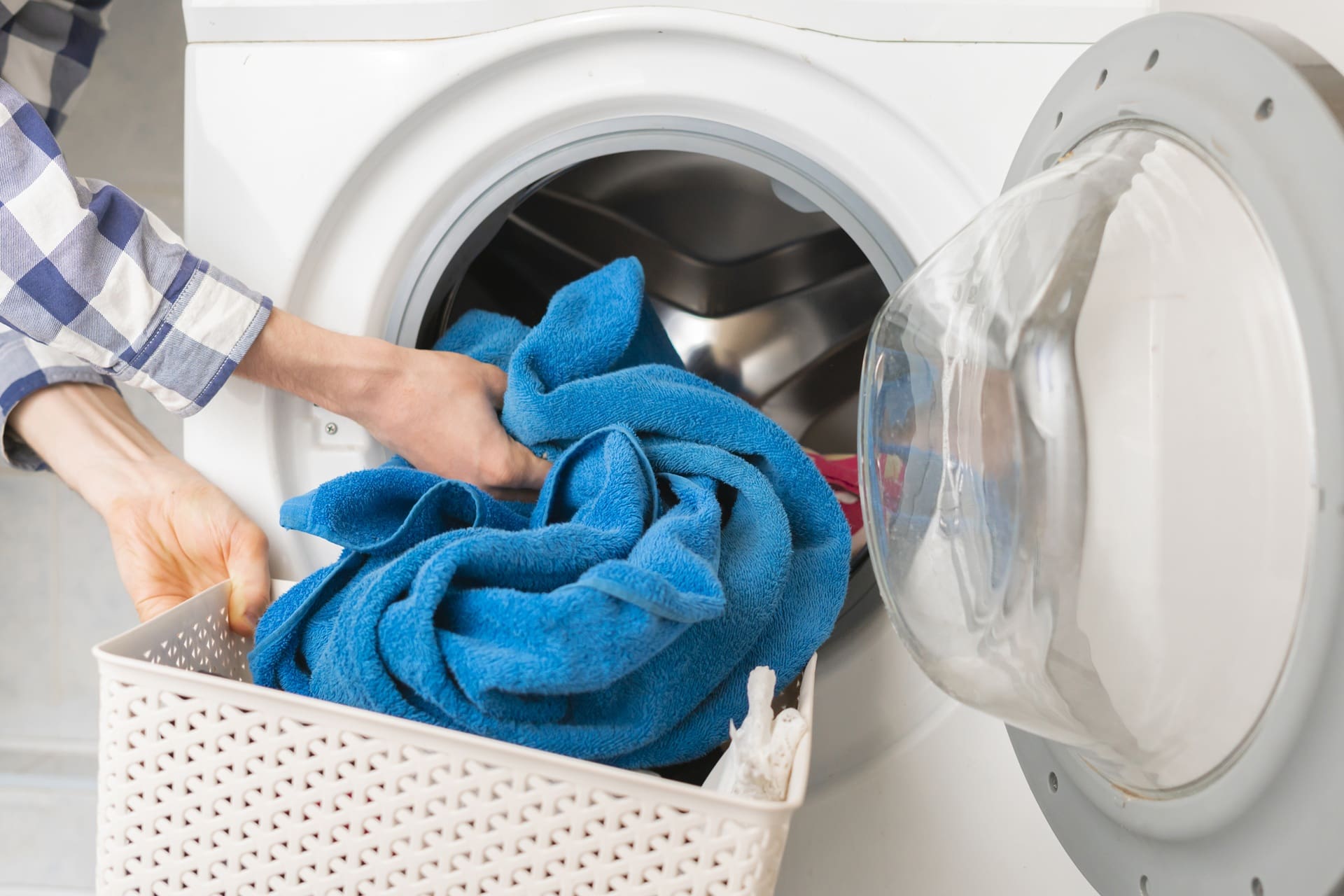Most washing machines come with a warm water setting, but how often do you actually use it? Many people default to either hot or cold water, but warm water has its own unique benefits—and drawbacks—depending on the fabric, stain type, and overall laundry goal.
But take note that while it’s great for certain loads, using it at the wrong time can lead to unwanted wear and tear on your clothes. So when should you use warm water, and when should you avoid it? That’s exactly what we cover in this blog. Read on for full details!
The Best Times to Use Warm Water for Laundry
If you’ve ever wondered whether warm water is worth using, the answer is yes—but only in the right situations. It’s not a one-size-fits-all setting, and using it incorrectly can lead to faded colors, weakened fabrics, or even lingering stains. But when used correctly, warm water can provide just the right balance of cleaning power and fabric care. So, when should you actually use it?
Here’s a simple guide to help you make the right call:
01. Everyday Clothing That’s Light to Moderately Soiled
For casualwear like T-shirts, jeans, and workout clothes, warm water is a great option. It helps dissolve detergent more effectively than cold water, meaning your clothing comes out cleaner. Warm water also lifts body oils, sweat, and light dirt better than cold water but without the fabric damage that can come with hot water.
Best for: Cotton, polyester blends, synthetic fabrics
02. Towels and Bed Linens That Need a Deeper Clean
Your towels, sheets, and pillowcases collect body oils, sweat, and bacteria over time. Washing them in warm water (instead of cold) helps remove stains and odors while keeping the fabric soft. However, if someone in your home has been sick, you might want to use hot water to kill germs.
Best for: Cotton and microfiber towels, bed sheets, pillowcases
03. Light Stains That Need Extra Cleaning Power
Certain stains, like sweat, dirt, and food spills, break down more effectively in warm water. Unlike hot water, which can set stains, warm water allows detergents to work better without damaging the fabric. However, be cautious—stains like blood, wine, and coffee should be rinsed in cold water first before washing in warm.
Best for: General dirt, mild food stains, sweat stains
04. Clothing with Synthetic Blends
Warm water is ideal for washing polyester, rayon, and nylon fabrics because it helps remove oils and residue without shrinking the fabric. Many workout clothes, dress shirts, and everyday pants are made from these materials. Using cold water may not clean them thoroughly, while hot water can break down fibers over time.
Best for: Activewear, synthetic dress shirts, polyester blends
05. When You Need a More Effective Rinse
Cold water doesn’t always rinse away the detergent and fabric softener completely, especially in high-efficiency washing machines. If you notice soap residue on your clothes after a cold wash, switching to warm water can help. It helps detergent dissolve properly, leading to a thorough clean without leftover buildup.
Best for: Loads with heavier detergent use, fabric softener users
06. Washing Clothes in Colder Weather
If you live in a colder climate or your laundry room isn’t heated, cold water may not work as well in the winter. That’s because detergent has trouble dissolving properly in very cold water. Warm water keeps the wash cycle effective, ensuring clothes come out clean even when it’s freezing outside.
Best for: Winter laundry, when water temperatures drop too low
Avoid Warm Water for Laundry in These Situations
Warm water is great for many types of laundry, but in some cases, it can do more harm than good. Choosing the wrong water temperature can lead to shrinkage, fading, or even setting stains deeper into the fabric. If you want to keep your clothes looking their best, knowing when not to use warm water is just as important as knowing when to use it.
Here are the key situations where you should avoid washing with warm water:
01. Delicate Fabrics That Shrink or Lose Their Shape
Some fabrics simply can’t handle the heat—even warm water can cause shrinkage, warping, or fiber damage. Materials like wool, cashmere, silk, and lace should always be washed in cold water or, in some cases, taken to a dry cleaning service to maintain their structure.
Avoid warm water for: Wool sweaters, silk blouses, lace lingerie, cashmere scarves
02. Bright or Dark Colored Clothing That Fades Over Time
If you want to keep your black jeans, navy dress shirts, or deep red blouses looking vibrant, warm water isn’t your friend. Warm water speeds up color fading, especially for dark and rich-colored fabrics. It opens up the fabric fibers, allowing dye to bleed out, leading to that washed-out look over time.
Avoid warm water for: Dark jeans, black shirts, brightly colored clothes
03. Stains That Can Set in Warm Water
Not all stains respond well to warm water. In fact, protein-based stains like blood, sweat, dairy, and eggs can set permanently if washed in warm or hot water. Warm temperatures cause these stains to bond with the fabric, making them nearly impossible to remove later.
Avoid warm water for: Blood, wine, coffee, dairy, sweat stains, mud until properly treated
04. Clothes Made from Heat Sensitive Synthetics
Not all synthetic fabrics can handle warm water. Materials like spandex, stretchy workout clothes, and certain polyester blends can lose elasticity or get damaged when washed in anything warmer than cold water. Over time, warm washes can make activewear and leggings feel loose and worn out.
Avoid warm water for: Leggings, yoga pants, sports bras, swimsuits
05. Expensive or High-end Clothing that Needs Extra Care
Luxury fabrics and designer clothes don’t do well in warm water cycles, especially if they have intricate detailing, embroidery, or embellishments. Warm water can weaken delicate fibers, fade colors, and cause fabric damage. If you’re not sure, check the clothing care label or take it to a professional laundry service for special handling.
Avoid warm water for: Silk ties, embellished blouses, formal dresses, embroidered fabrics
06. Energy Efficiency and Cost-saving Considerations
If you’re looking to save on electricity or reduce your water heating costs, washing in warm water isn’t always necessary. Cold water cleans most everyday laundry just fine, and modern detergents are designed to work in lower temperatures. If you do laundry frequently in an apartment or pay per load at a coin laundry or nearest laundromat, using cold water can keep costs down.
Avoid warm water unless: Necessary for stain removal or deep cleaning
Final Tip: Always Check Clothing Labels
If you’re ever unsure, clothing labels tell you exactly which water temperature to use. Some fabrics may tolerate warm water but last longer in cold water, while others require special care like dry cleaning or Wash and Fold Laundry Service.
Not Sure Which Wash is Best? Great American Cleaners Knows What Your Clothes Need!
Looking for a local laundry service in El Cerrito, California that never cuts corners on quality, cleanliness, or customer care? Great American Cleaners never fails to deliver! From regular laundry service and dry cleaning to specialty fabrics and household items, we guarantee customer satisfaction with every service.
For ultimate convenience, join our Laundry Club Plans and get premium Wash and Fold Laundry Service at unbeatable rates. Choose the plan that fits your lifestyle:
👨👩👧👦 Family Plan – $169/month (90 lbs. included, $2.85 per lb after)
💑 Couples Plan – $135/month (60 lbs included, $2.85 per lb after)
🧑 Singles Plan – $79/month (30 lbs. included, $2.85 per lb. after)
📍 Visit us at: 215 El Cerrito Plaza., El Cerrito, CA, 94530
📧 Email us at: help@greatamericandrycleaners.com
📞 Call us today: 510-526-6844


